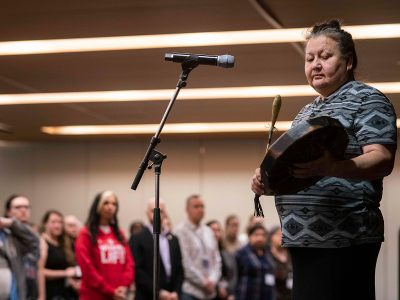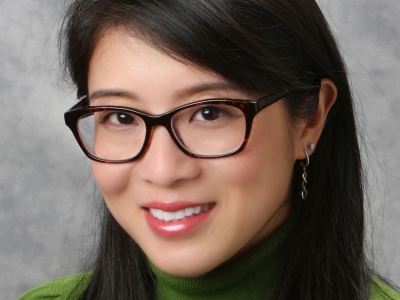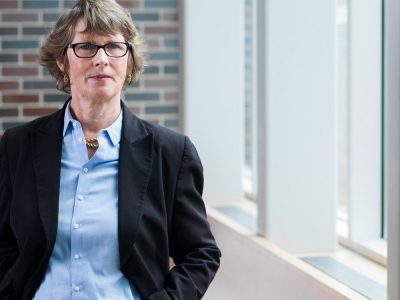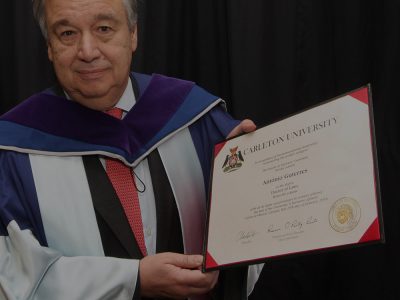By Dan Rubinstein
Carleton University Engineering Prof. David Lau is an earthquake expert. His research focuses on improving the resilience of structures such as buildings and bridges when the ground shakes, which happens more frequently in Japan than in almost any other country in the world.
So it makes sense for Lau to be spending his sabbatical leave as a visiting professor at the Tokyo Institute of Technology’s Laboratory for Future Interdisciplinary Research of Science and Technology, where he is collaborating on an advanced seismic engineering and urban disaster prevention project.
The partnership with Japanese scientists is using Carleton’s new Canada Foundation for Innovation-funded multi-hazard test facility, which features real-time hybrid simulation equipment and a mobile vibration and earthquake motion simulation shake table system among other fire, blast, wind and climate change hazards test equipment.
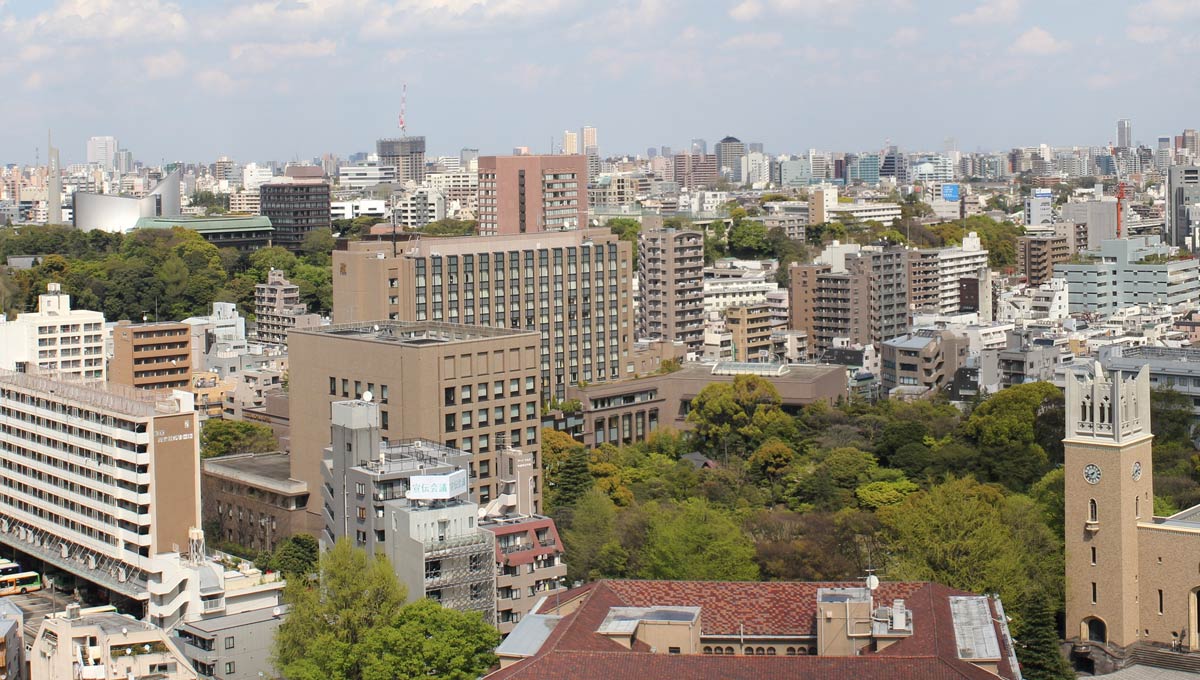
It’s an example of Canadian expertise helping to address a global challenge. And it demonstrates the potential for further research and educational collaborations between Carleton and Japanese schools as the university strives to expand and enhance its international relationships.
“Japan on the one hand is an advanced high-tech country, and yet in some aspects it is still a very traditional insulated society,” says Lau, who has been working with colleagues in Japan for more than 30 years. “To renew its global competitiveness, Japan feels that a better understanding of the outside world is necessary.
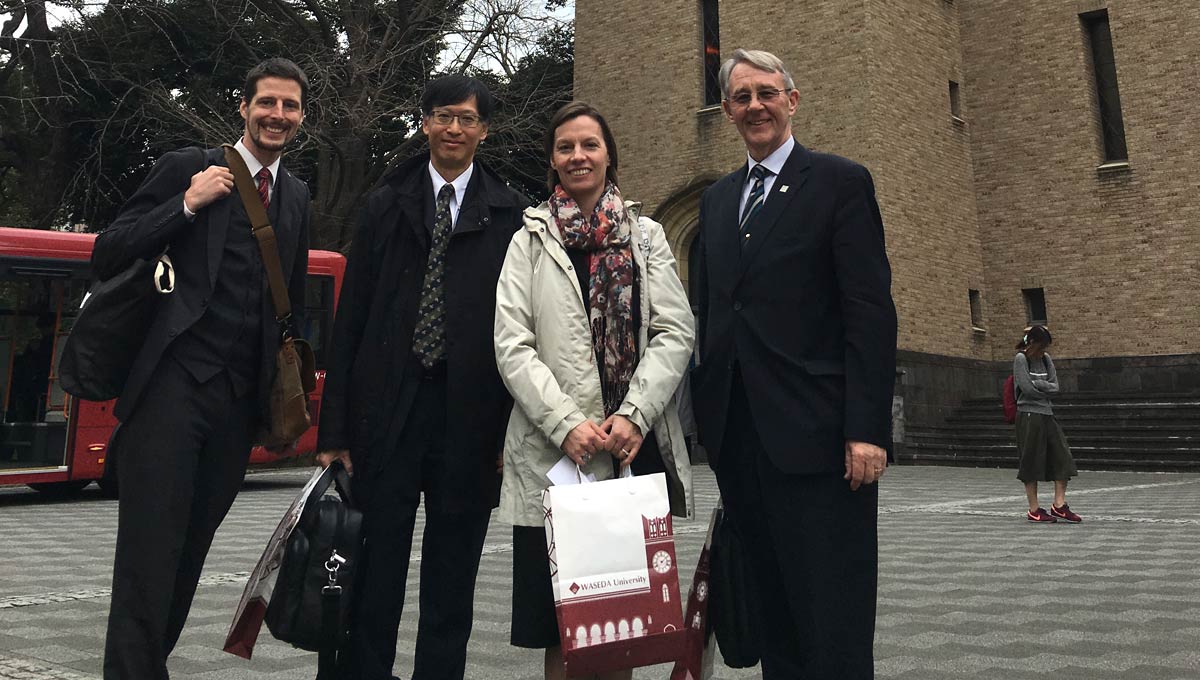
(Left to right) Cael Husband, second secretary, Embassy of Canada; Carleton Prof. David Lau, (visiting faculty at Tokyo Institute of Technology), Diana McKay, director of Carleton’s Global Institute; and Carleton’s Peter Ricketts, vice-president (Academic).
“This is an opportune time for Carleton to explore opportunities with similar institutions in Japan, as they are also interested in establishing international contact beyond their traditional partnerships of the past.”
Lau recently spent some time in Tokyo with Carleton Vice-President (Academic) Peter Ricketts and Diana MacKay, executive director of Carleton’s Global Academy, who are in Japan to sign a Memorandum of Understanding with Tokyo’s Waseda University and discuss future collaborations between Carleton and other post-secondary, government and industry leaders.
“As a capital city university with aspirations to use our Ottawa location as a global gateway, Carleton is well positioned to deepen academic, research and professional partnerships in Japan,” says Ricketts.
“Waseda’s relationship with Carleton opens important opportunities for students, researchers, and ideas to move dynamically between Canada and Japan as they contribute to both institutions’ shared tradition of addressing global issues and developing leaders who can make a difference,” says Norimasa Morita, vice-president for International Affairs at Waseda.
Waseda, a large, private research-oriented university, was established in 1882 — during an era of significant modernization in Japan — with a goal of improving access to education, which is similar to Carleton’s founding ethos.
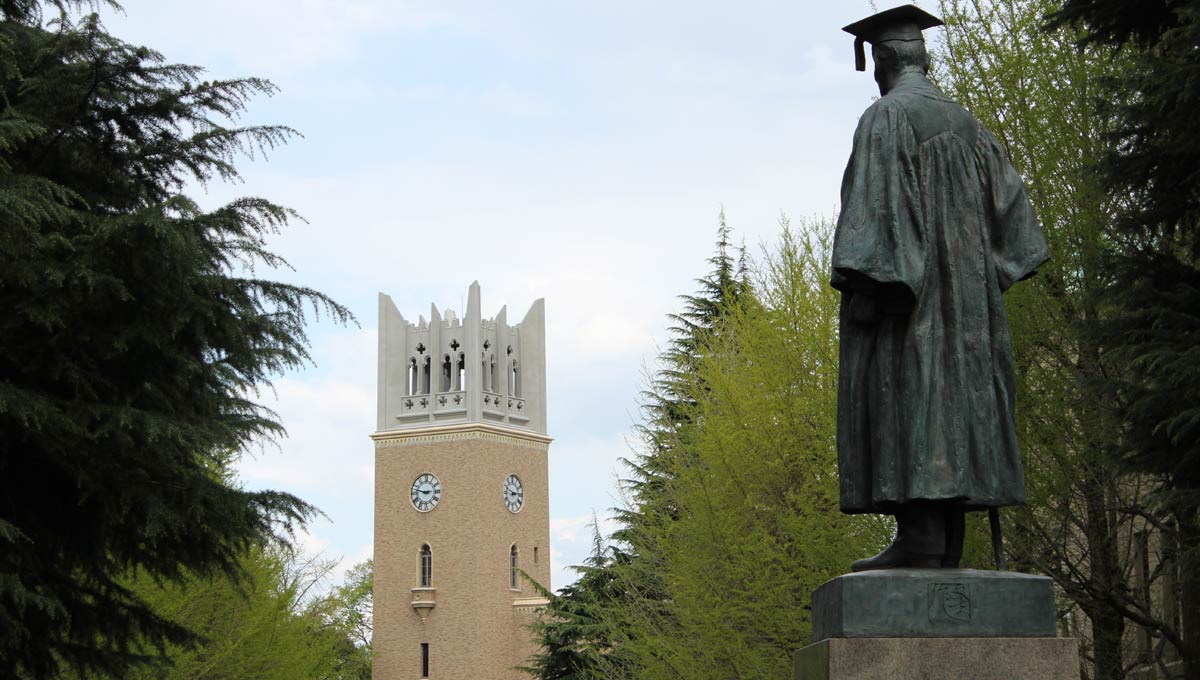
Parallels Between
Carleton and Waseda
There are other parallels between the two institutions: both are rooted in their national capitals, have exceptional sporting traditions, and are recognized for producing government and business leaders.
“The stars are aligning for Carleton to become a real player in terms of engagement in Japan,” says MacKay, whose itinerary in Japan includes meetings with Tokyo Governor Yuriko Koike, various officials from government and Mitsubishi Electric Corporation, and a dozen or so universities and research institutes.
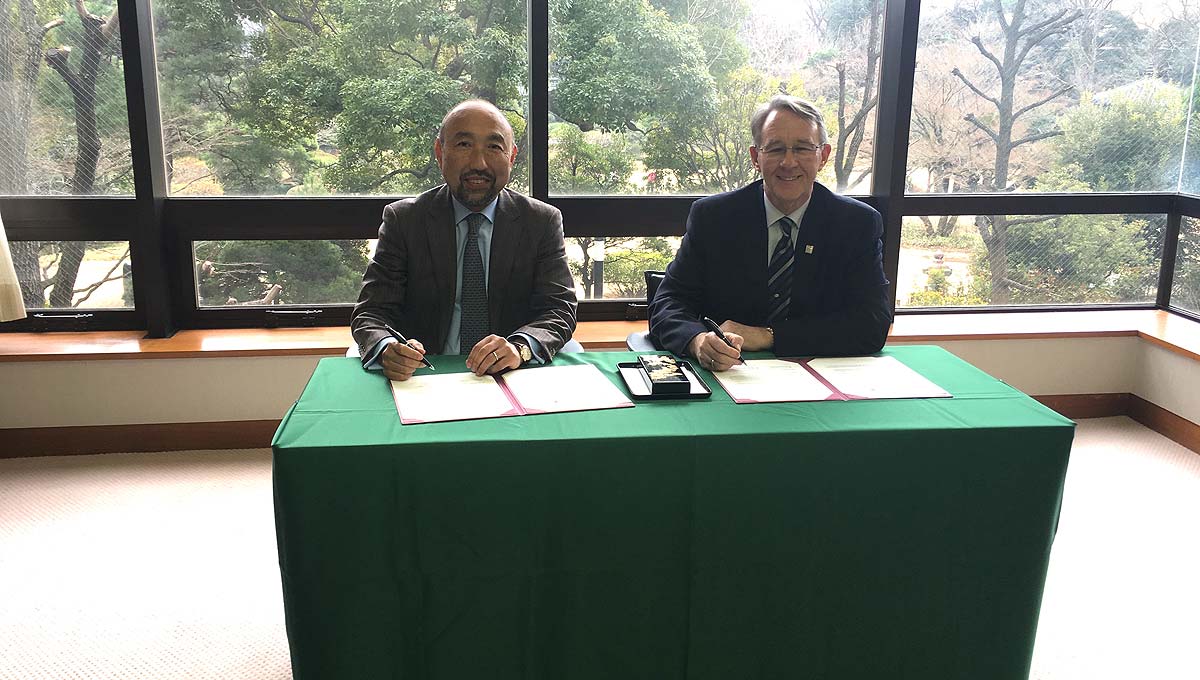
Norimasa Morita, vice-president for International Affairs at Waseda University and Peter Ricketts, vice-president (Academic) at Carleton, sign a Memorandum of Understanding.
Carleton has a broad range of about three dozen faculty members already active in Japan. Among them are Mechanical and Aerospace Engineering Prof. Jason Etele, who has spent time as a visiting researcher at Japan’s Kakuda Space Center and has published several papers on rocket-based combined cycle engines with Japanese colleagues, Art History Prof. Ming Tiampo, who specializes in post-1945 Japanese art, and School of Industrial Design Director, Thomas Garvey, who has a long history of working with institutions and individuals in Japan.
Beyond research, Carleton’s School of Linguistics and Language Studies (SLaLS) offers a popular minor in Japanese, which attracts an average of 250 students each year and has one of the highest retention rates compared with other languages offered at the university. This creates a large cohort of students interested in overseas experiences in Japan.
“In terms of language acquisition, there’s no substitute for an immersive experience,” says SLaLS Director David Wood, who has spent about three years teaching and doing research at a pair of universities in Japan. “It can really boost your proficiency.
“But also, depending on your motivation for studying Japanese, an exchange can really help with academic, professional or cultural goals. Experiencing these things first-hand is solid gold. It puts the language in a context.”
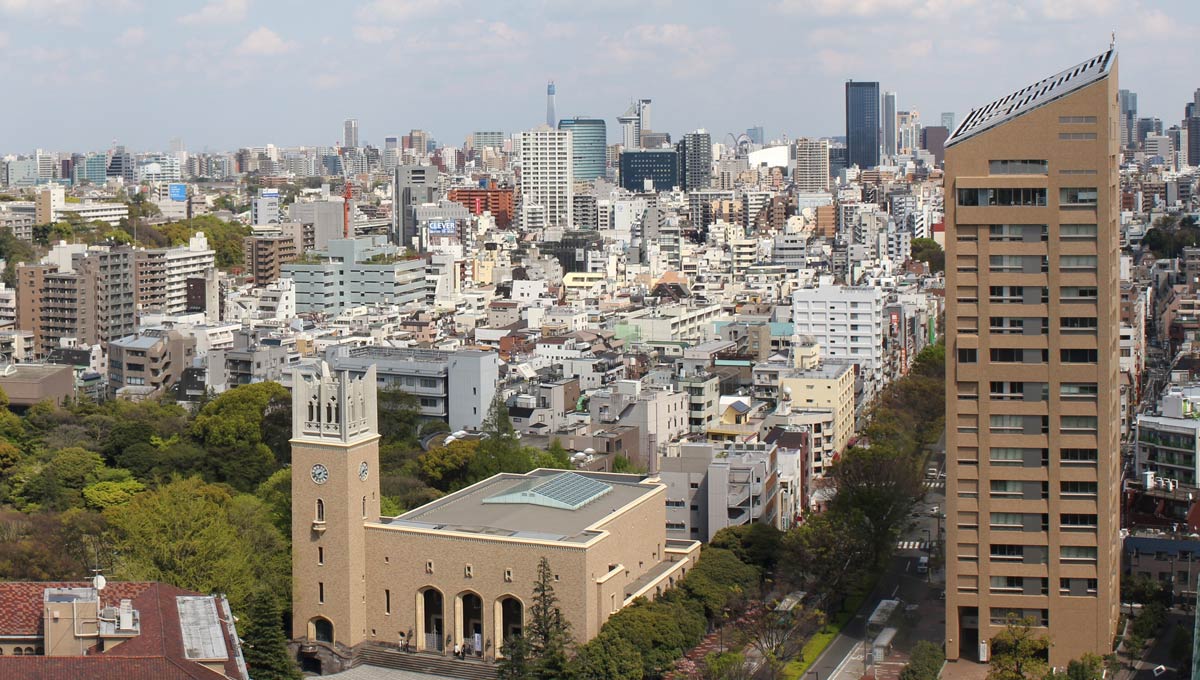
Japan Faces Aging Population
Because the population is aging in Japan, adds Wood, its universities are more and more open to international students. This is amplified by the country’s increasing interest in internationalization. “There are so many opportunities for students to go and do exchanges in Japan,” he says.
On the flip side, when students from Japan come to a university such as Carleton, whether it’s to study English or work on a research project, it brings a country that’s often seen as “exotic” into Canadian classrooms.
“It takes a country that’s extremely important to us — and extremely important globally — and allows us to see it and understand it more realistically because we’re interacting with people,” says Wood.
“It demystifies Japan. The bonds of communication open.”
Conversations between Japanese and Carleton officials come in the context of increased talk at the senior government level about the importance of deepening trade links between Canada and Japan and developing the untapped potential of the bilateral relationship.
Prime Minister Justin Trudeau and Japanese Prime Minster Shinzō Abe have met twice, and Global Affairs Canada and Japan’s Ministry of Foreign Affairs have committed to advance priority areas such as infrastructure, energy, science and technology co-operation; improving the business environment and promoting investment; and tourism and youth exchanges.
Considering the geopolitical uncertainly currently sweeping the globe, the time is right for Canada and Japan to serve as moderating influences in their respective regions, says MacKay, who spent a year on exchange at Waseda in the late 1980s, an experience she calls “life changing.”
“Now, more than ever before,” she says, “the time is right for Canada and Japan to step up to new opportunities and work together as close partners.”
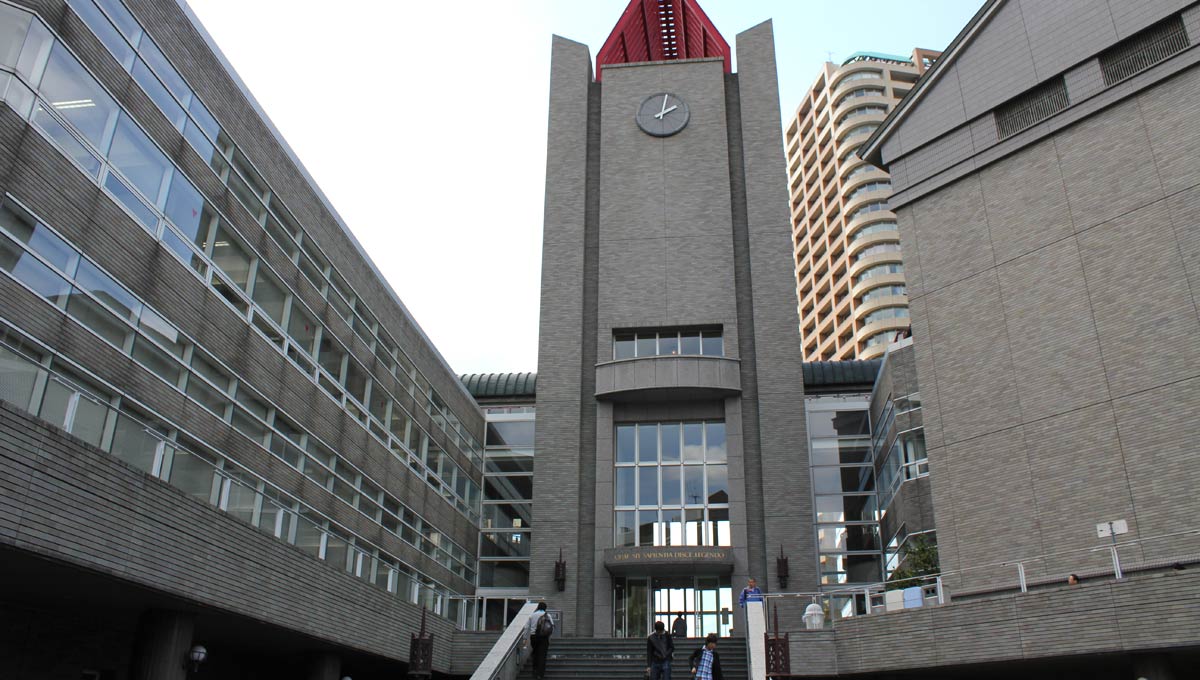
Monday, March 13, 2017 in Engineering, International, Research
Share: Twitter, Facebook
